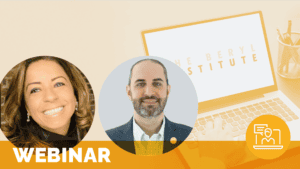Patient Centered Rounding on Fearful Patients
Published July 21, 2016


Colleen Sweeney, RN, BS, Founder/Owner of Sweeney Healthcare Enterprises
In healthcare, we have become obsessed with rounding. We round for quality, safety, efficiency, staff engagement, outcomes, the list goes on. We call it administrative rounding, purposeful rounding, leader rounding, intentional rounding, and, of course, hourly rounding. But what do patients wish we rounded for? In this webinar, Colleen Sweeney, the nation’s foremost expert on patient fears who created The Patient Empathy Project, will share what information patients want us to seek. By using soft skills and software, she will help us discover that asking the right questions when rounding can lead to a wealth of information that can be used to win loyal patients, to influence patients’ perception of their care, and to market to your community. Join Colleen as she identifies what is most concerning to patients and how we can revise our rounding practices to be truly patient centered.
Learning objectives:
-
- The audience will be able to identify the top 10 fears of the hospital patient
- Listeners will be able to list the purpose of leader rounding
- Participants will know the 4 phases of leader rounds
- Learners will understand the benefits of recognizing patient fears and addressing them
Related content
-
Patient Family & Community Engagement
From Fear to Hope: How Communication Transformed Our Pregnancy Journey A Personal Narrative on the Critical Role of Healthcare Communication in Patient Experience
Published August 8, 2025

This article emphasises the transformative potential of compassionate healthcare communication, particularly in the context of pregnancy loss. This personal narrative illustrates how varying communication approaches can significantly alter patient experiences, transforming anxiety-laden medical encounters into empowering partnerships with healthcare providers. A ten-month journey through pregnancy after a devastating miscarriage revealed the profound impact of communication
Learn more -
Culture & Leadership | Patient Family & Community Engagement | Policy & Measurement | Staff & Provider Engagement
Pulse Check: Perspectives on Human Experience
Published September 19, 2025

Complimentary – This 30-minute session will explore key headlines from the most recent PX Pulse report and findings from the State of Human Experience 2025 study. Participants will engage in discussion on consumer perspectives on the current state of healthcare, review the biggest trends in human experience, and reflect on how these insights will impact both
Learn more -
Culture & Leadership | Patient Family & Community Engagement
National Human Experience Movement Led by SOBREXP in Brazil
Published October 28, 2025

Complimentary – Discover the inspiring journey of Brazil’s National Movement in Human Experience, led by SOBREXP, the Brazilian Society of Patient Experience and Person Centered Care. Learn about the timeline, strategies, challenges, and key achievements that have shaped this groundbreaking effort to elevate the human experience. Speakers: • Carla Ledo, RN, MBA, CPXP | President,
Learn more
